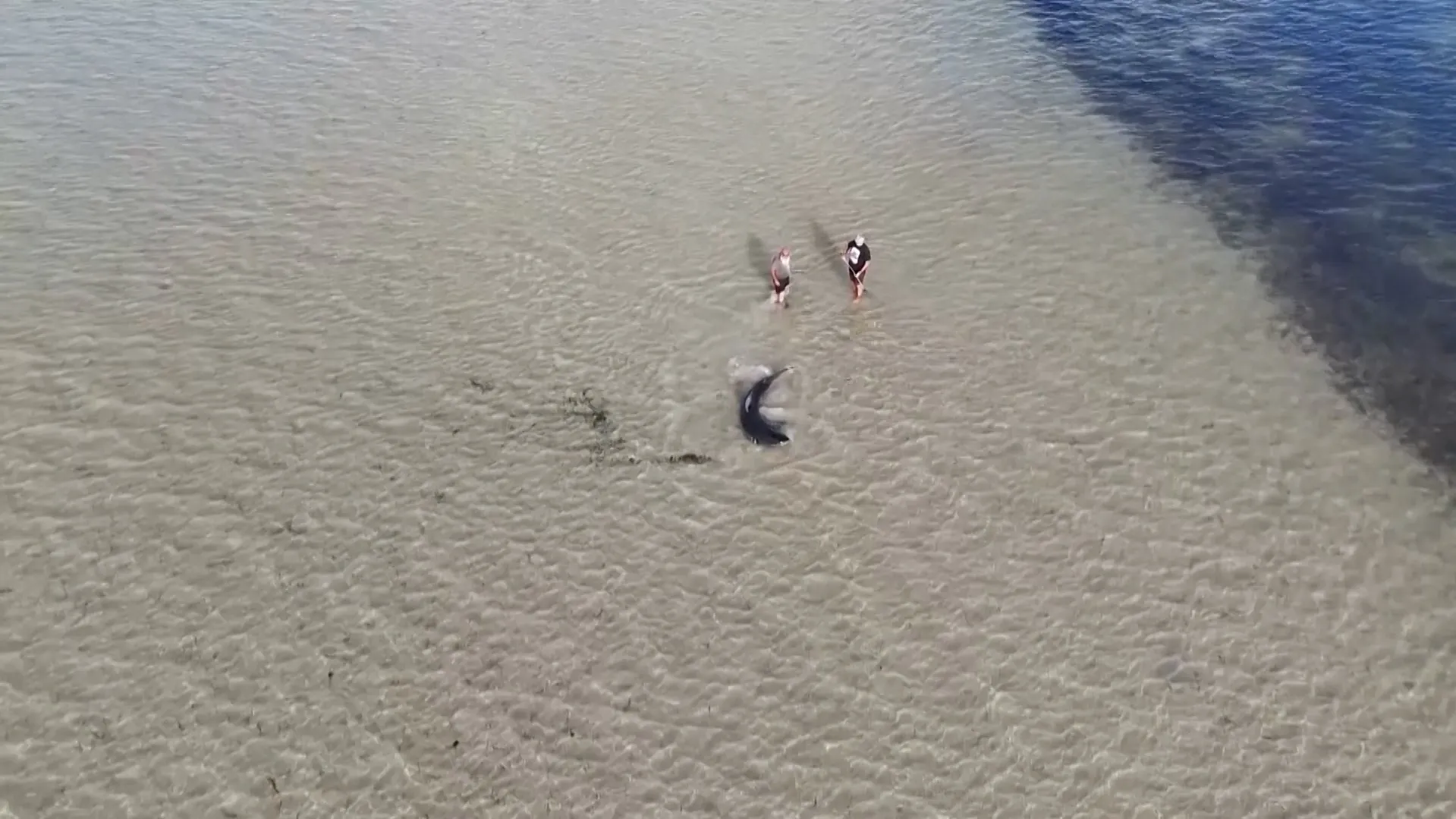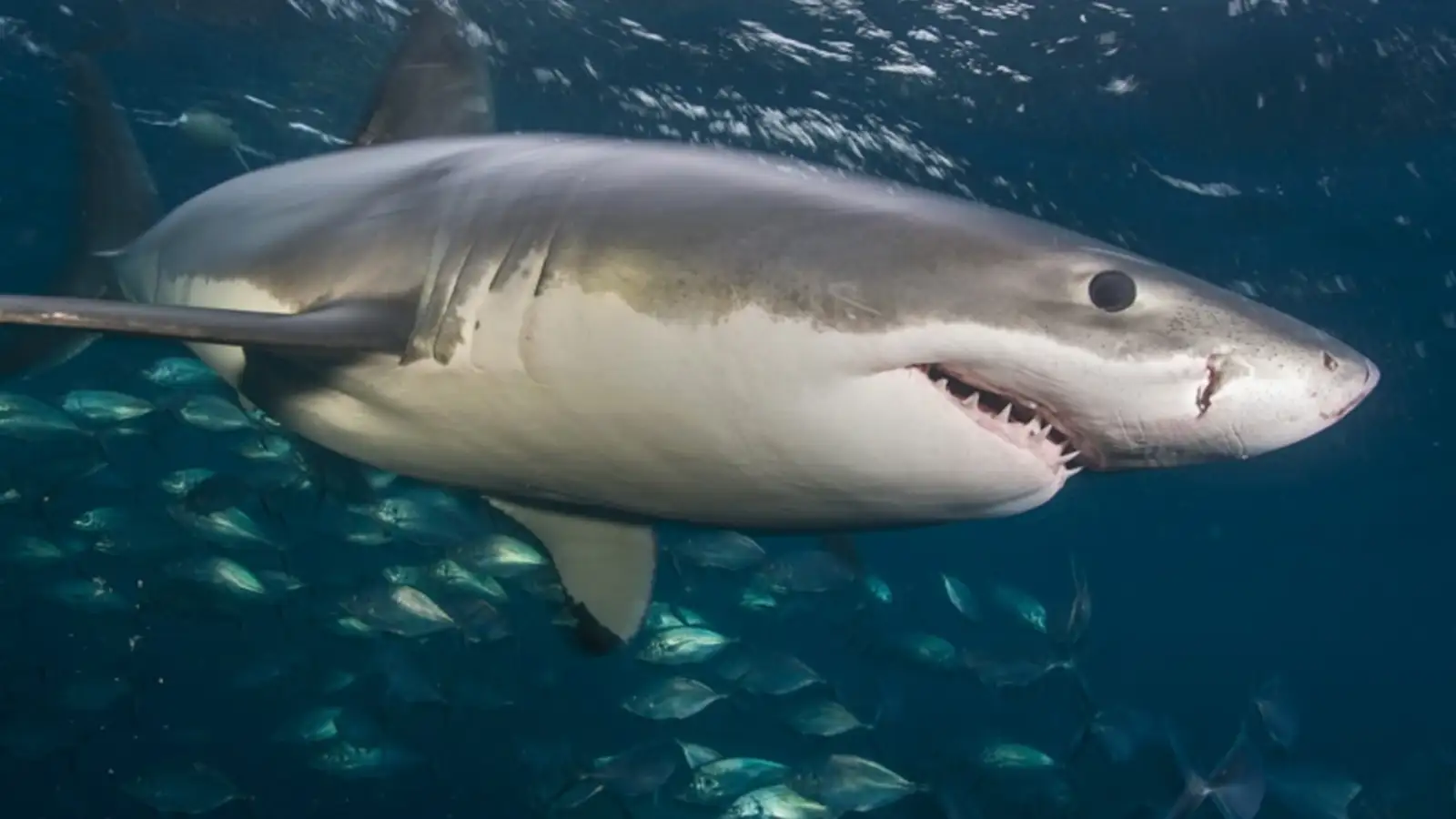When Nash Core set out for a family vacation around Australia, he never imagined he’d find himself wading into ocean waters alongside his 11-year-old son to rescue one of nature’s most feared predators. The Gold Coast tourist and his family stumbled upon an extraordinary scene near the South Australian coastal town of Ardrossan on Tuesday: a three-meter great white shark stranded on a sandbank, desperately struggling to return to deeper waters.
What followed was an hour-long rescue mission that tested the courage of both locals and visitors alike, creating an unforgettable experience that perfectly captured the spirit of human compassion extending even to apex predators.
A Family Adventure Takes an Unexpected Turn
The Core family—Nash, his wife Ash, and their two sons Parker (11) and Lennox (7)—were exploring Australia’s coastline when they encountered something truly remarkable. Initially, Nash used his drone to capture footage of the writhing shark, documenting what appeared to be a rare wildlife emergency unfolding before their eyes.
Three local men had already discovered the distressed animal and were attempting to guide it back to safety using crab rakes—specialized garden rake-like tools typically used for digging small crabs from sand. However, the massive size and weight of the great white made their task incredibly challenging, prompting the visiting family to consider joining the rescue effort.
Courage Overcomes Fear in Ocean Waters
Despite natural apprehensions about approaching such a formidable predator, Nash and Parker decided to wade into the shallow waters to assist the struggling locals. The father candidly admitted to experiencing significant anxiety about the decision, questioning his judgment even as he moved toward the shark.
“To be honest, I did have some thoughts about, ‘oh, why am I going out here?'” Nash reflected on the experience. The tension was palpable for both father and son, with young Parker expressing his nervousness by telling his father, “My heart’s pounding.” Nash’s honest response—”Yeah, mine’s beating pretty fast too”—revealed the genuine fear both felt while choosing to help anyway.
Strategic Rescue and Respectful Boundaries

By the time the Core family joined the rescue operation, the three local men had successfully used their crab rakes to maneuver the shark toward deeper waters. Nash made a conscious decision to maintain an appropriate distance once the animal reached its natural habitat, recognizing the importance of respecting the predator’s domain.
“They got it into deeper water where I thought it’s probably not a good idea to go any further. That’s its territory and I’ll stay back,” he explained, demonstrating wisdom alongside his courage. The collaborative effort ultimately proved successful, with the shark swimming away into deeper waters, though its ultimate fate remains unknown.
Understanding Shark Strandings
According to Macquarie University wildlife scientist Vanessa Pirotta, shark strandings represent relatively uncommon but increasingly documented phenomena. Social media platforms have made such incidents more visible to the public, creating greater awareness of these wildlife emergencies.
Multiple factors can contribute to marine animals becoming stranded, including illness, injury, or the pursuit of prey into shallow waters. The exact cause of this particular great white’s predicament remains unclear, though the animal appeared either sick or exhausted during the rescue attempt.
Safety First Approach to Wildlife Rescue
Pirotta emphasized that human safety must always take precedence in such situations, recommending that people contact environmental authorities rather than attempting direct intervention. Professional wildlife responders possess the training and equipment necessary to handle dangerous rescue scenarios safely.
The Ardrossan incident highlights both the compassionate instincts of ordinary people and the importance of exercising appropriate caution when encountering distressed wildlife. While the rescue proved successful, it serves as a reminder that such situations require careful assessment of risks and benefits.
A Memorable Experience
For the Core family, this unexpected encounter transformed a routine vacation into an extraordinary adventure. The local rescuers later shared that they had never witnessed a beached shark before, making the experience unique for everyone involved.
Nash’s final assessment reflected cautious optimism: “We definitely got it into some deeper water, so hopefully it’s swimming still.” The incident demonstrates how ordinary people can make extraordinary differences when they choose compassion over fear, even when facing one of nature’s most intimidating creatures.

